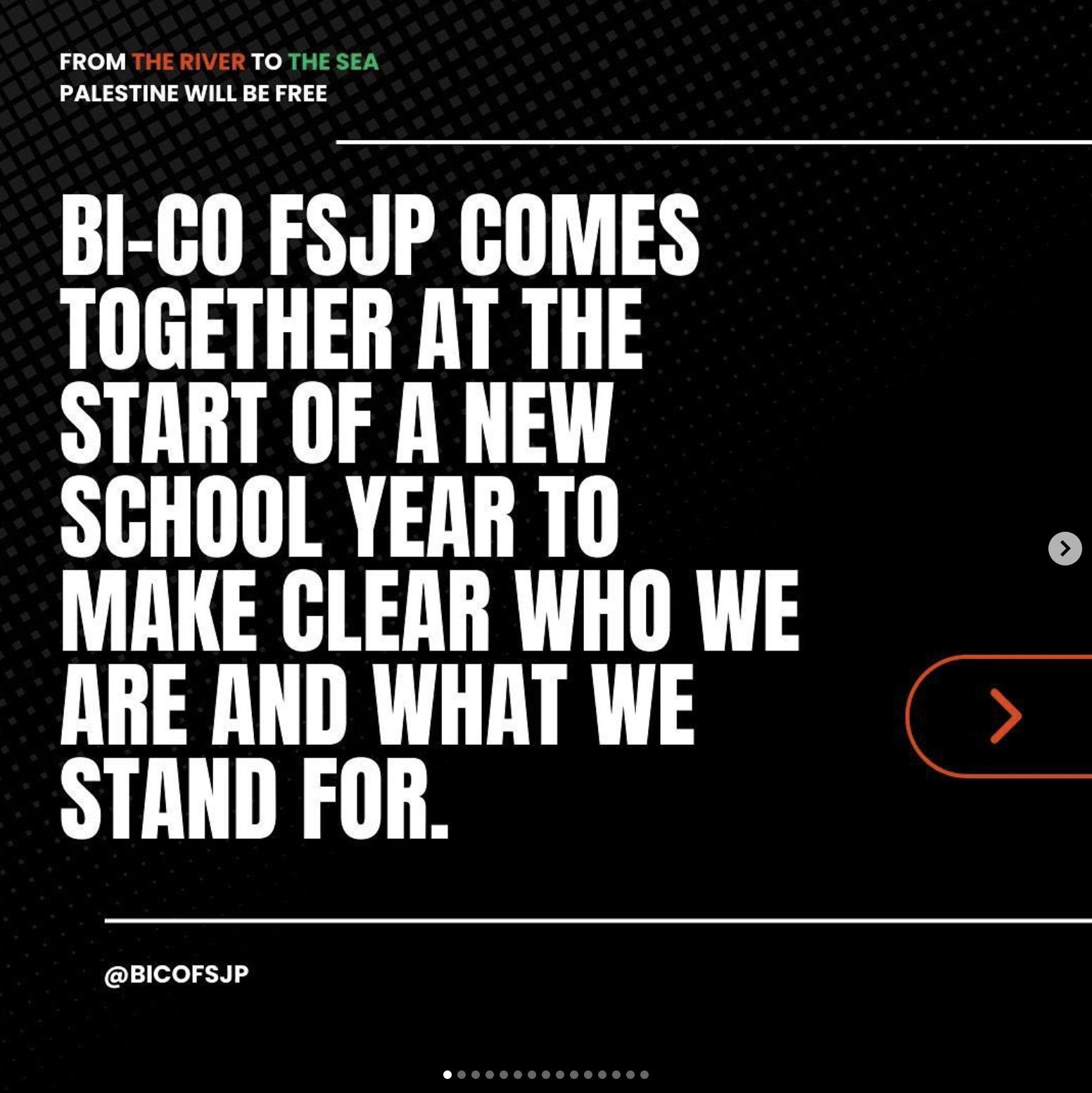As fall semester starts up, classes begin andclubs are reinvigorated. Alongside these developments, faculty and staff organizations are reunited: Bi-Co Faculty and Staff for Justice in Palestine (FSJP) has recently taken to Instagram to clarify its aims in this new year.
The academic year of 2023-2024 saw an eruption of student protests and encampments on college campuses across the US, organized to promote Palestinian liberation and demand institutional divestment from companies tied to the state of Israel. Haverford and Bryn Mawr students were no exception, and orchestrated a series of protests and teach-ins throughout the year, culminating in encampments on each campus at the end of April.
Across the Bi-Co, there are two Students for Justice in Palestine (SJP) chapters: one comprised of Haverford students and the other for students across the Bi-Co, as well as an FSJP chapter.
According to a timeline released by Bi-Co FSJP, Haverford faculty officially announced an FJP chapter on November 27, 2023, in order to “contextualize the hate crime in Vermont [the shooting of Haverford student Kinnan Abdalhamid (‘25) and friends Tahseen Ali Ahmad and Hisham Awartani] in the ways that Pres. Raymond’s message did not.”
Haverford FJP later merged with Bryn Mawr faculty and staff to establish Bi-Co FSJP and held meetings throughout the spring semester with the intent of engaging in pro-Palestinian activism.
The group has solidified its aims in recent months. Its main form of communication is Instagram, and a post from September 3 highlights their assertion that “the genocide is ongoing,” and includes an official mission statement for the upcoming school year. They encourage students “interested in attending Palestinian-focused events on campus, or simply in learning more about [their] activities and the broader movement for justice and freedom in Palestine” to keep tabs on their account.
Haverford math professor and member of Bi-Co FSJP Tarik Aougab elaborated on these aims, saying, “one way to approach the year is just to figure out the right balance between understanding the specifics of the Bi-Co and also placing it in the context of being one out of thousands of other schools that are all metabolizing what is going on in this genocide right now … so just sort of triangulating between wanting to do what we can to support our students and our own goals in a Bi-Co-specific context, but not losing track of the fact that we’re just a piece of a much, much bigger puzzle.”
FSJP has also highlighted its support of student activists on campus. Bryn Mawr data science professor and Bi-Co FSJP member Augie Faller stated, “Some faculty were very concerned about how the Dean’s panels were handled last year — [first] that there were Dean’s panels, and then how they were handled.”
On September 20th, President Wendy Cadge released a draft of the College’s expanded policies to the Bryn Mawr community via email. Additionally, she advertised a series of listening sessions during which community members may “share [their] feedback, suggest input, and ask questions about the draft policy.” Haverford President Wendy Raymond announced similar but more general intentions in a message to the community on August 28th, promoting a new series entitled Meeting the Moment: Community in Dialogue. This series, too, makes space for specific discussions about safety for student protesters, and provides for student and faculty workshops on the topics at hand.
Faller said, “I hope that the community discussion leads to community involvement in really defining the key parameters of the guidelines,” adding, “there’s debate about what is offensive, and if we don’t resolve that, there’s a risk that whenever someone is offended, that becomes grounds for limiting students’ speech.”
Faller is referring in part to a contentious discourse in action across the globe, in which some claim that the phrase “from the river to the sea, Palestine will be free” is antisemitic, and that it calls for the extermination of Jews from Israel. Much of the debate taking place between groups of students on campus last year centered on this issue of free speech and the right to protest, which some students found distracting from the core issue of violence in both Israel and Gaza.
FSJP’s recent post gave an impassioned defense of the language used at pro-Palestine protests: “While Zionists call for a change of language — as though language against genocide were more harmful than the bombs dropped on children — we call for an end to the ongoing genocide and the liberation of Palestine from a fascist colonial occupation.”
